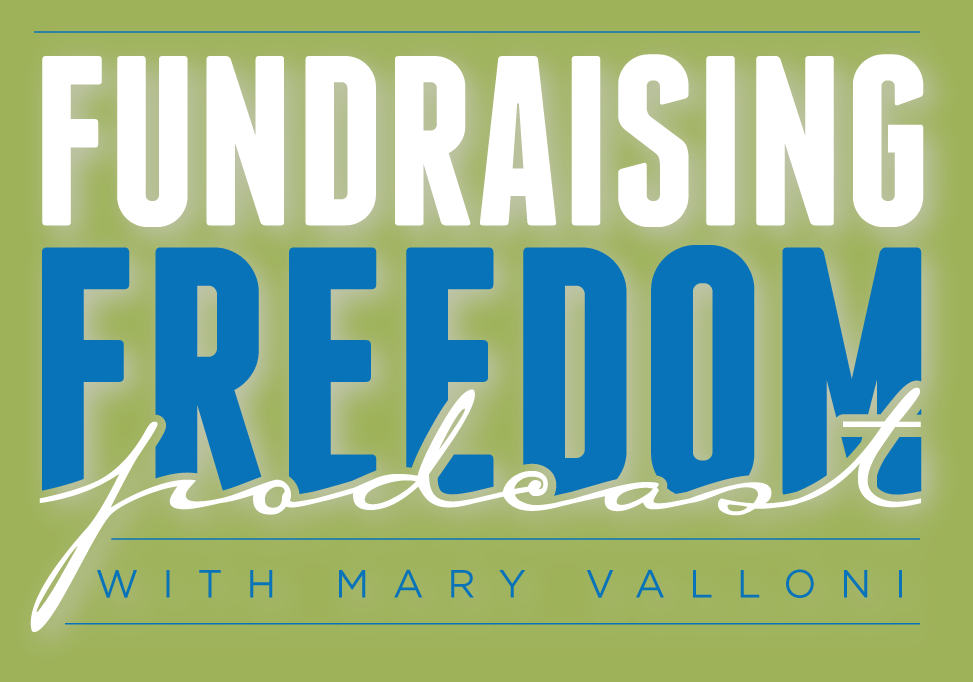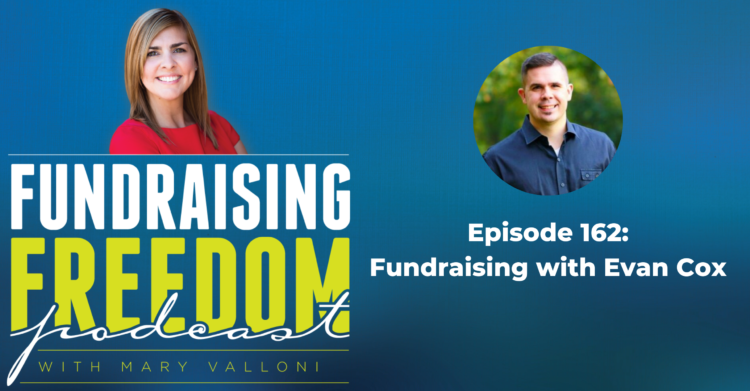Podcast: Play in new window | Download
Subscribe: Apple Podcasts | Android | RSS
Today, I am joined by special guest Evan Cox. Evan works for Joyce Meyer Ministries and has a background in nonprofit work with the St. Louis Dream Center, Hand of Hope, and many others. He’s also an incredible copywriter. I’ve invited him onto today’s show to share his insight on fundraising and the work he’s done.
Tell us about yourself.
My wife and I started fundraising in order to go on mission trips. These took us to about 20 different countries around the globe and so for us, our fundraising strategy wasn’t centered around a development tactic or a best practice. It was a much more personal and passionate approach to fundraising because it meant we either did or didn’t get to take part in the cause we cared so much about. This involved raising funds through friends, family, churches, and the community. Then we went outside that zone to others who didn’t know us and we tried to determine what resonated most with them.
Where does your passion for fundraising come from?
It’s both a passion and a bit of a soapbox. When you think about a cause that you care deeply about, that is what everyone thinks about as the first priority. If, for example, you’re all about clean water, then everything you do is centered around making sure all people have access to clean drinking water. And oftentimes, subconsciously, everyone on the team can take the fundraising element and stick it on the back burner. Or slip into, “this is what we have to do in order to get to where we really want to be.” And that’s not necessarily a bad thing, but I think it’s a huge missed opportunity. My passion point is that the cause you care about should be just as important as the people who are helping make that cause a reality. And I think that’s what nonprofit development is. Fundraising is really about putting effort and energy into building relationships with your donors, partners, and the people who help make what you do possible. In the long run, you’ll see your donors go through a transformation, which is what we’re all after, at the same time as the people you’re directly serving on the ground are being transformed. Everybody loves a story, and a story is only good if there’s transformation.
What lights you up in the work that you go?
When you get to see a real-life change in a person, that’s extremely powerful. Very rarely do I make a cold call to get funding. In fact, I would venture to say that, that doesn’t happen at all. It’s all about caring about the individual needs of the donors. For instance, I have an on-going list I keep of every time someone mentions a type of prayer request where I may send them a notecard and then follow up with them two weeks later to see how they are doing. Those moments matter and it’s only through the context of relationships that people feel valued. If all you’re ever doing is talking about money, people feel that. They can almost smell it. And you have to have a relationship built before you can traverse any of the waters.
Are you calling on those people because you want their money?
I genuinely care about them. It doesn’t mean you can’t have goals and aspirations, but for me, everything is about going on a journey with folks and that’s thanking them. I’m not the only piece that’s happening in their world. For me, it’s all about reaching out to my donors and letting them know I’m human. Sometimes, you are the donor’s only direct connection to the organization and if you don’t take the time to personally connect with them, it impacts the entire way they think and feel about your organization and not just you.
What are some of the ways you’ve worked in the past that aren’t working now?
I think what we were already seeing was expedited to another level when the pandemic hit. Produced, polished content is not nearly as effective as raw and personal content. There’s still a need to be professional in terms of how you conduct yourself and the words you say, but when you are responsibly transparent and you showcase a new level of authenticity, people resonate with that and respect it.
What advice would you give to someone who is just getting started?
First, we live in a digital age where we have so many details at our fingertips. I would say if you enjoy research get acclimated with what people are saying out in the nonprofit development space in terms of folks who are providing good resources. Align yourself with people who have been where you haven’t so you can learn from their wins and their mistakes before you have the opportunity to make that same mistake. Secondly, don’t put too much pressure on yourself. This is a long game, not a quick or a short one. If you’re jumping into a development or donor-based arena, the reality is that connection moves at the speed of relationship, and relationship takes time. You can’t microwave or fabricate a relationship unless it’s been tested by a little bit of time. Don’t look for a tangible step of you’re either winning or losing right out of the gate because it won’t happen.
What does fundraising freedom mean to you?
When fundraising is done right, it changes everything. That unlocks freedom for you as the development staff or volunteer. You’re helping folks move from something they don’t have and couldn’t have on their own to something they now achieve. That transformation is visceral. People don’t care about your idea or abstract concept unless it’s solving a problem. On a basic human level, everyone is looking to have their problem solved. Taking time to invest, unlocks freedom for everyone from donor to end recipient. It takes time, but it’s worth the investment.
Resources mentioned:
Connect with Evan:
Connect with Mary:

